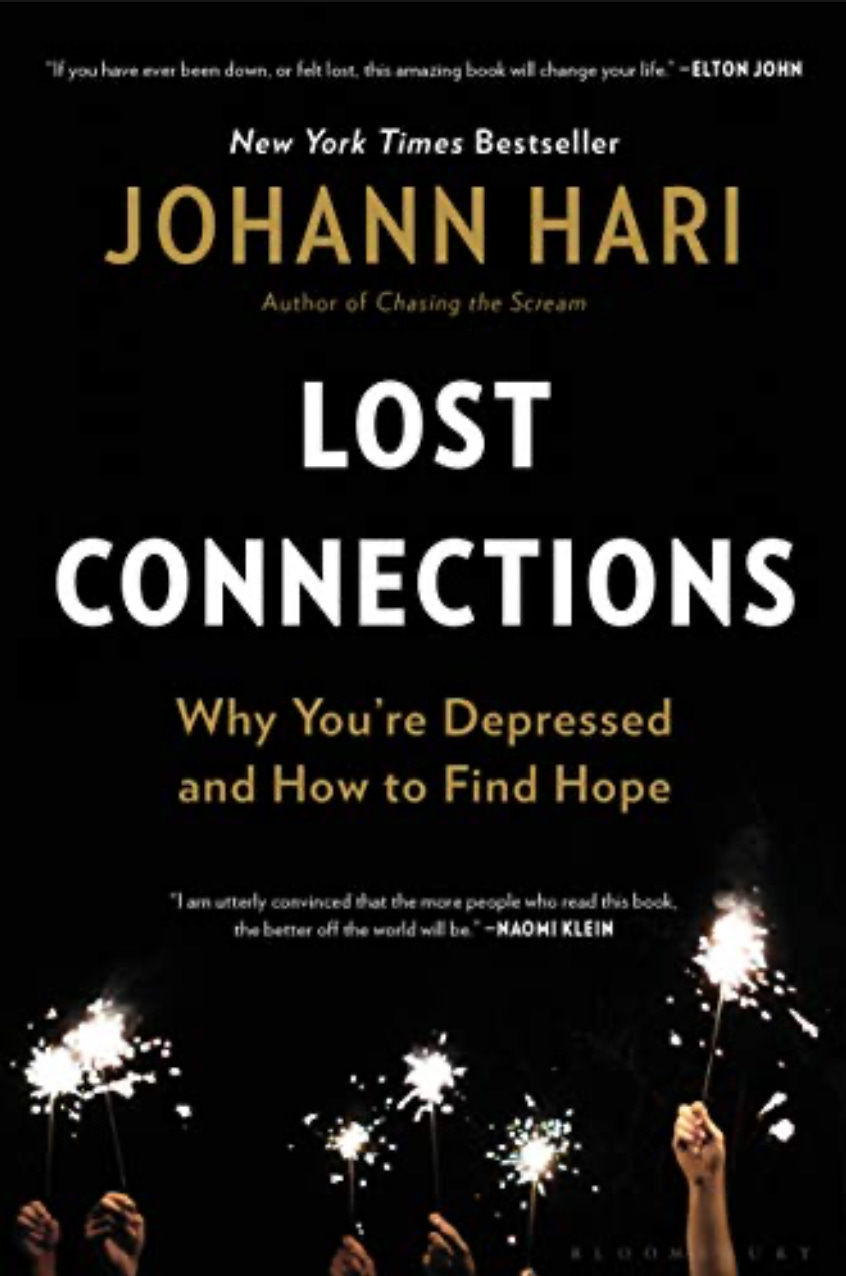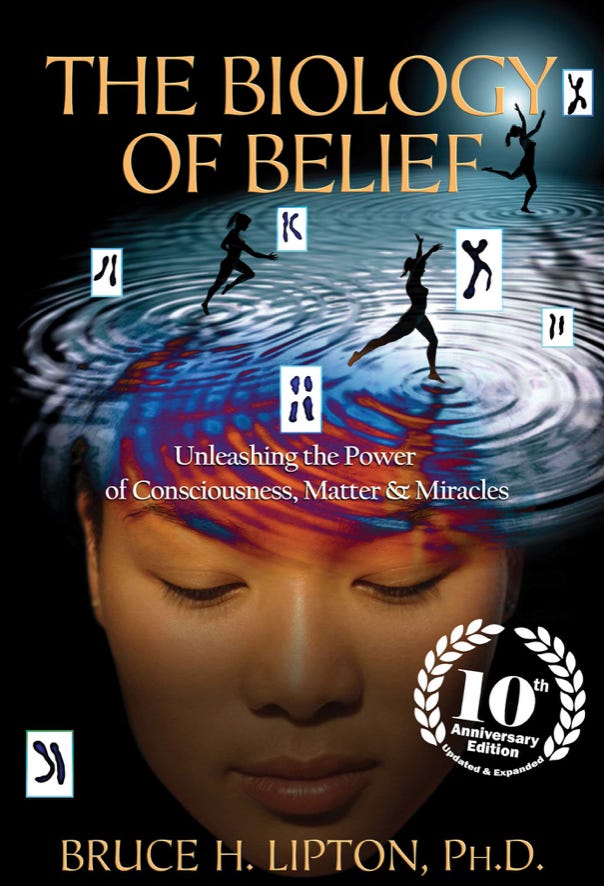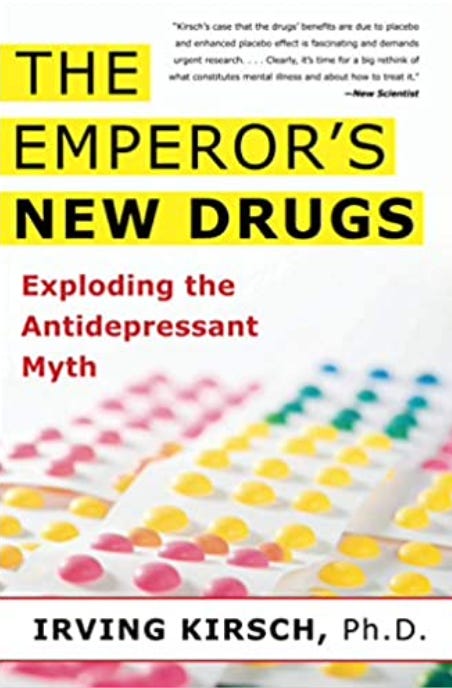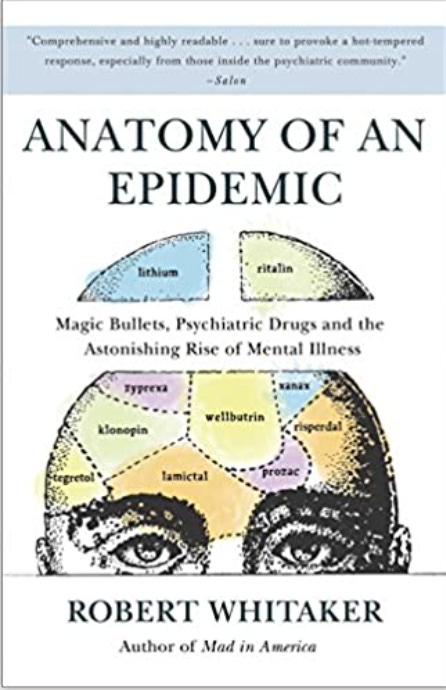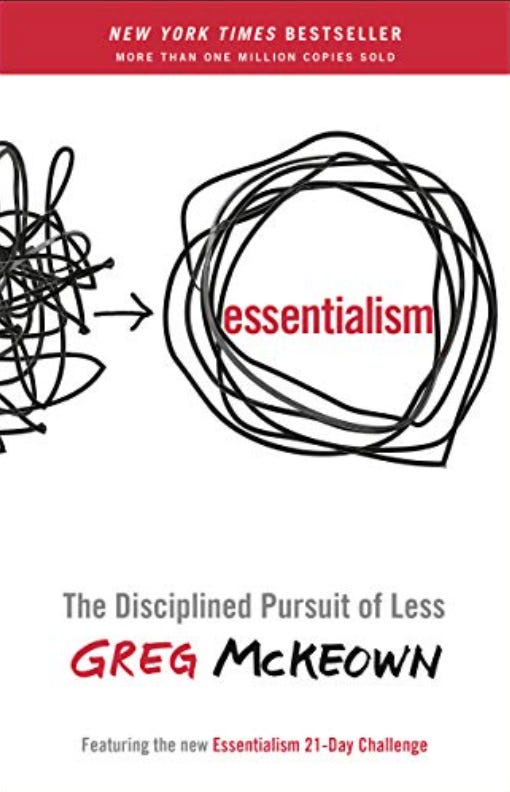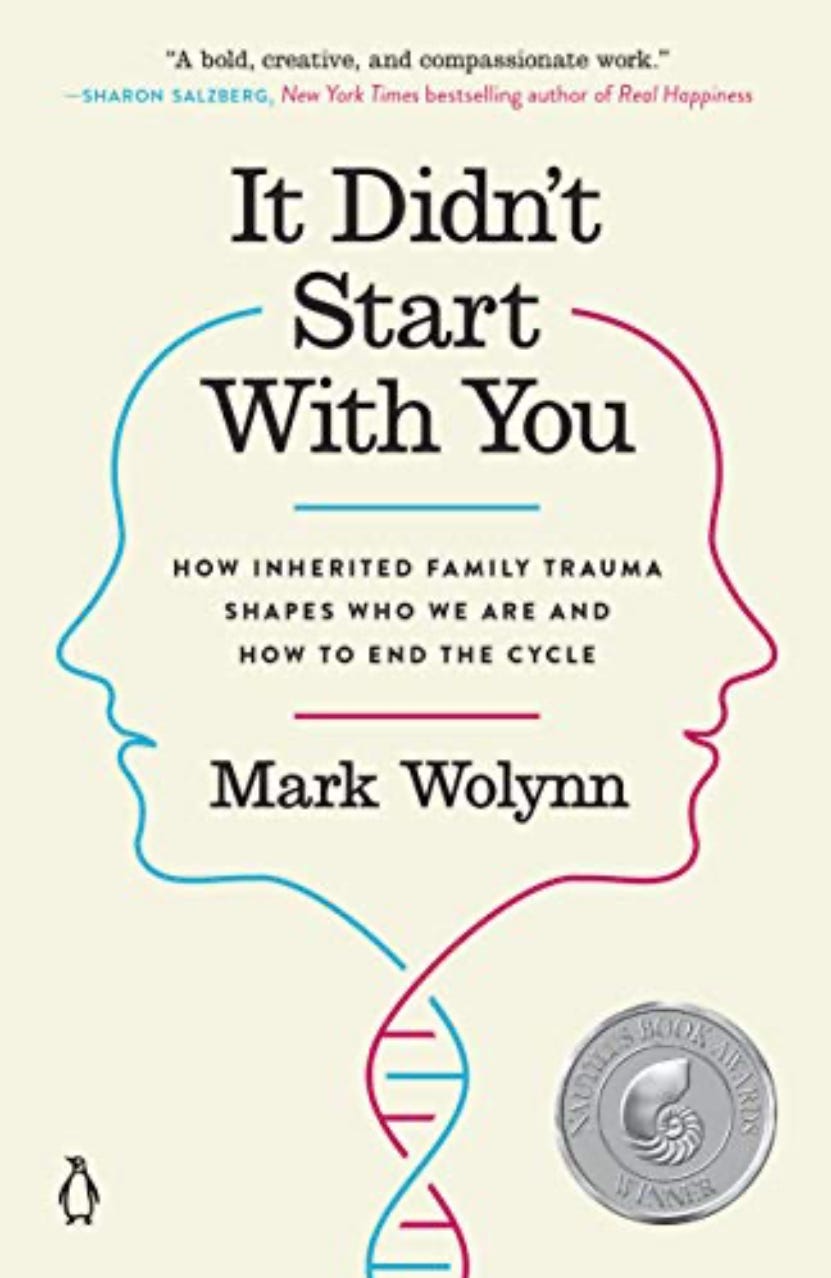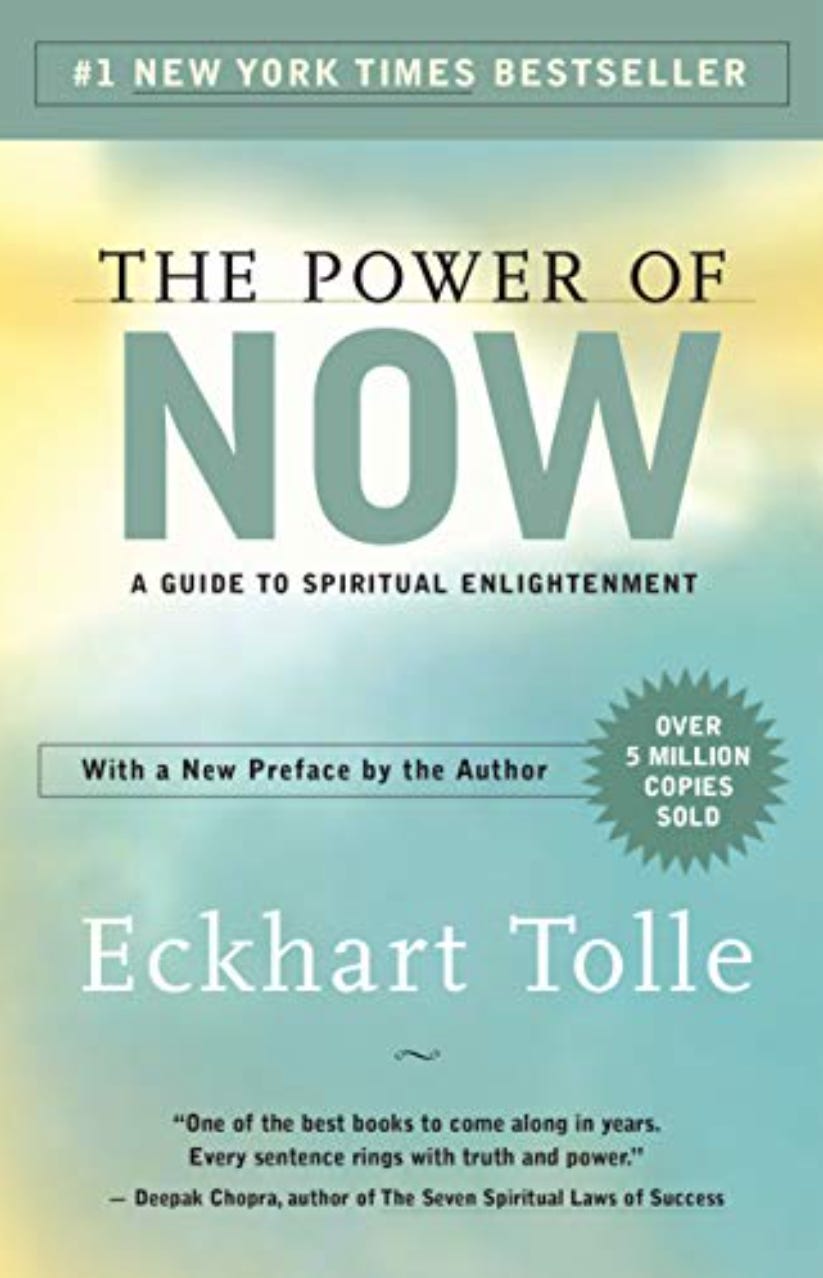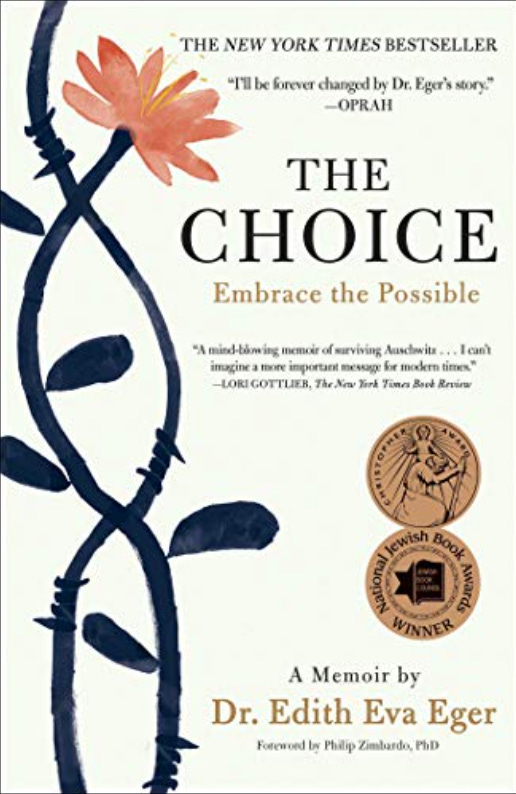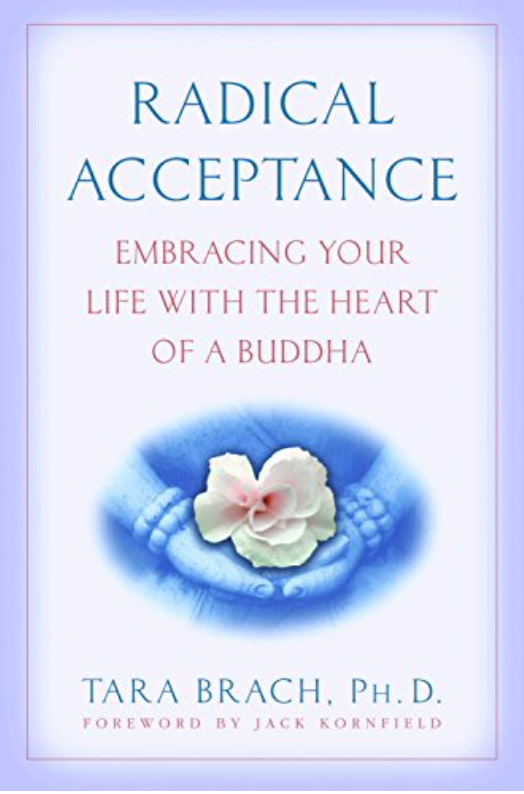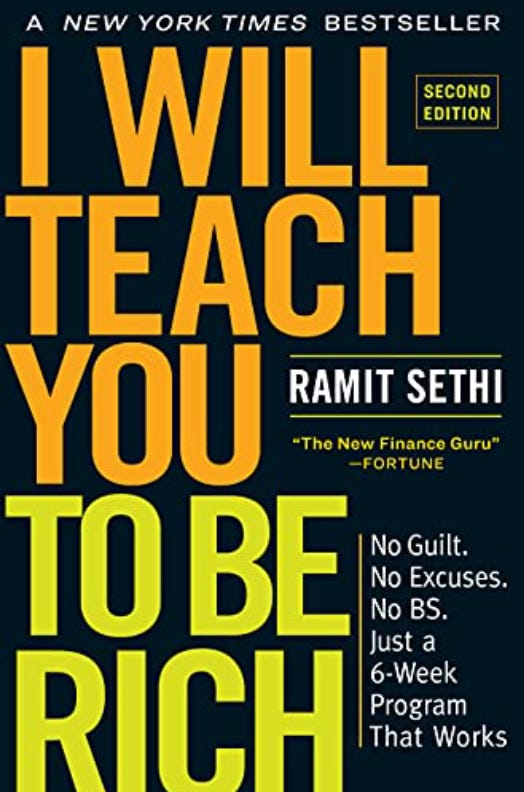After a marathon few months, I’m headed into a much needed hiatus from all things work. Until then, I wanted to leave you with a selection of books to help you mentally settle into these unsettling times. I ingest the wise words of others during troubled times always helps me re-center.
Here are 10 Books for a Happier You
I recommend this book all the time, including in recent issues of HIAS. If you are depressed or have a depressed family member, this is the one book I’d recommend over all others.
“There was a mystery haunting award-winning investigative journalist Johann Hari. He was thirty-nine years old, and almost every year he had been alive, depression and anxiety had increased in Britain and across the Western world. Why?
He had a very personal reason to ask this question. When he was a teenager, he had gone to his doctor and explained that he felt like pain was leaking out of him, and he couldn’t control it or understand it. Some of the solutions his doctor offered had given him some relief-but he remained in deep pain.
So, as an adult, he went on a forty-thousand-mile journey across the world to interview the leading experts about what causes depression and anxiety, and what solves them. He learned there is scientific evidence for nine different causes of depression and anxiety-and that this knowledge leads to a very different set of solutions: ones that offer real hope.”
Biology of Belief was one of the first books to bring the world of epigenetics and the power of thought to the mainstream.
“The implications of this research radically change our understanding of life, showing that genes and DNA do not control our biology; instead, DNA is controlled by signals from outside the cell, including the energetic messages emanating from our positive and negative thoughts.
This profoundly hopeful synthesis of the latest and best research in cell biology and quantum physics has been hailed as a major breakthrough, showing that our bodies can be changed as we retrain our thinking.”
“Do antidepressants work? Of course — everyone knows it. Like his colleagues, Irving Kirsch, a researcher and clinical psychologist, for years referred patients to psychiatrists to have their depression treated with drugs before deciding to investigate for himself just how effective the drugs actually were. Over the course of the past fifteen years, however, Kirsch’s research — a thorough analysis of decades of Food and Drug Administration data — has demonstrated that what everyone knew about antidepressants was wrong. Instead of treating depression with drugs, we’ve been treating it with suggestion.
The Emperor’s New Drugs makes an overwhelming case that what had seemed a cornerstone of psychiatric treatment is little more than a faulty consensus. But Kirsch does more than just criticize: he offers a path society can follow so that we stop popping pills and start proper treatment for depression.”
“In this astonishing and startling book, award-winning science and history writer Robert Whitaker investigates a medical mystery: Why has the number of disabled mentally ill in the United States tripled over the past two decades?
Interwoven with Whitaker’s groundbreaking analysis of the merits of psychiatric medications are the personal stories of children and adults swept up in this epidemic. As Anatomy of an Epidemic reveals, other societies have begun to alter their use of psychiatric medications and are now reporting much improved outcomes . . . so why can’t such change happen here in the United States? Why have the results from these long-term studies—all of which point to the same startling conclusion—been kept from the public?”
This book has changed the way I approach decision making and helped understand what is truly essential, as opposed to a shiny distraction.
“Essentialism is more than a time-management strategy or a productivity technique. It is a systematic discipline for discerning what is absolutely essential, then eliminating everything that is not, so we can make the highest possible contribution toward the things that really matter.
By forcing us to apply more selective criteria for what is Essential, the disciplined pursuit of less empowers us to reclaim control of our own choices about where to spend our precious time and energy—instead of giving others the implicit permission to choose for us.”
A more practical application of epigenetics (whereas Biology of Belief focuses on the science), It Didn’t Start With You explores how the traumas suffered by your family have a direct affect on you.
“The latest scientific research, now making headlines, supports what many have long intuited—that traumatic experience can be passed down through generations. It Didn’t Start with You builds on the work of leading experts in post-traumatic stress, including Mount Sinai School of Medicine neuroscientist Rachel Yehuda and psychiatrist Bessel van der Kolk, author of The Body Keeps the Score.”
The Power of Now was the final piece in my puzzle of healing. I read it when I was in Prague, in January of 2017, and felt the shift occur as I read the book. It is one of those books that will be over the head of those who aren’t ready, but for those who are, it is transformational.
I believe this book should be required reading. It is astounding—for those who are ready to receive its message.
“At the age of sixteen, Edith Eger was sent to Auschwitz. Hours after her parents were killed, Nazi officer Dr. Josef Mengele, forced Edie to dance for his amusement and her survival. Edie was pulled from a pile of corpses when the American troops liberated the camps in 1945.
Edie spent decades struggling with flashbacks and survivor’s guilt, determined to stay silent and hide from the past. Thirty-five years after the war ended, she returned to Auschwitz and was finally able to fully heal and forgive the one person she’d been unable to forgive—herself.”
“‘Believing that something is wrong with us is a deep and tenacious suffering,’ says Tara Brach at the start of this illuminating book. This suffering emerges in crippling self-judgments and conflicts in our relationships, in addictions and perfectionism, in loneliness and overwork—all the forces that keep our lives constricted and unfulfilled. Radical Acceptance offers a path to freedom, including the day-to-day practical guidance developed over Dr. Brach’s twenty years of work with therapy clients and Buddhist students.”
Money is one of the great causes of mental anguish, and yet few people are willing to pick up a book and learn how to get out of debt, invest, and change the invisible scripts that run your monetary life. Whether you don’t think you have the income to save an extra $50/month or you don’t know what to do with your riches, I Will Teach You To Be Rich is as educational as it is entertaining.
Before you go…
After 15 years of depression and antidepressants, my mission is to help people find hope in the name of healing. My memoir on the subject, MAY CAUSE SIDE EFFECTS, publishes in August 2022.
Pre-order it now.
For the most up-to-date announcements, subscribe to my newsletter HAPPINESS IS A SKILL, a weekly newsletter devoted to helping people heal from depression.
January 3, 2023
On Living and Breathing Grief
read the article
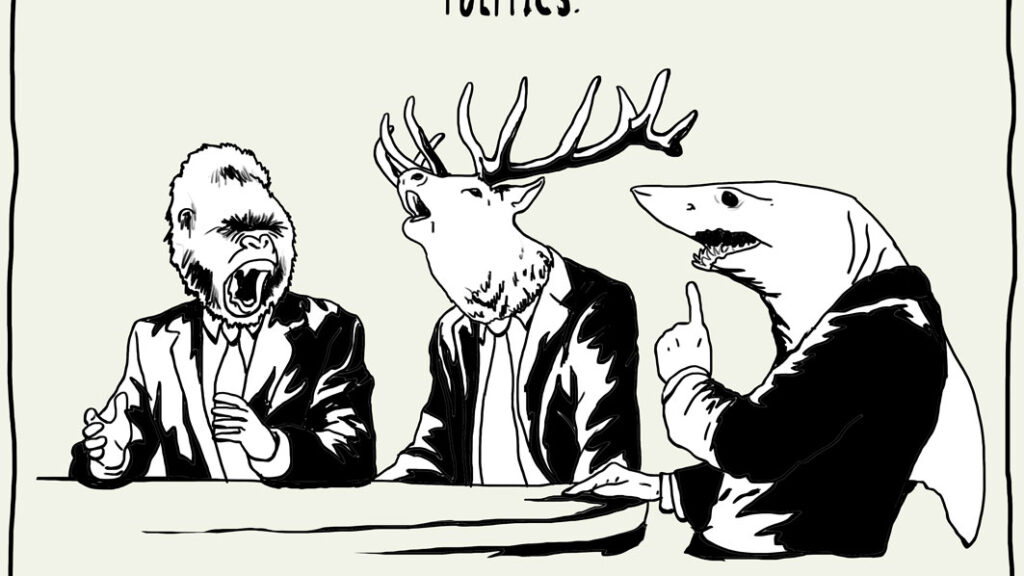
October 28, 2022
The struggle to kill the serotonin theory of depression in a world of political nonsense
read the article

October 21, 2022
Last Times
read the article

October 14, 2022
Newborn Babies Go Through Antidepressant Withdrawal
read the article






